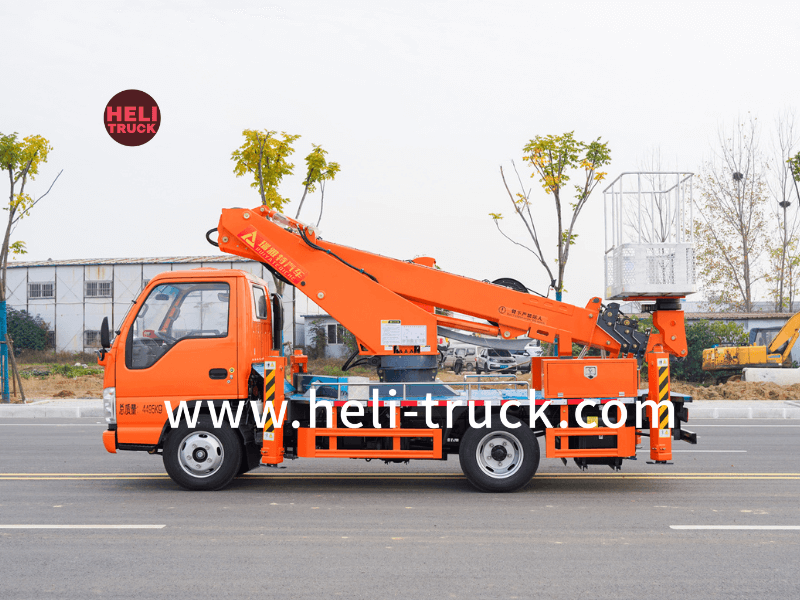Ensuring Environmental Safety and Compliance Vacuum Truck Waste Disposal Standards

Introduction
Vacuum trucks play a crucial role in waste management, particularly in industries such as construction, mining, and oil and gas. These specialized vehicles are designed to safely and efficiently collect various types of waste, including liquids, sludge, and hazardous materials. However, the proper disposal of waste collected by vacuum trucks is essential to protect the environment and public health. In this article, we will delve into the standards and regulations governing vacuum truck waste disposal to ensure environmental safety and compliance.
Regulatory Framework for Vacuum Truck Waste Disposal
The disposal of waste collected by vacuum trucks is subject to a complex regulatory framework that varies depending on the type of waste being handled and the jurisdiction in which the disposal takes place. In the United States, the Environmental Protection Agency (EPA) and state environmental agencies are responsible for regulating the disposal of hazardous and non-hazardous waste.
Hazardous Waste Disposal
Hazardous waste, which includes materials that are flammable, corrosive, toxic, or reactive, must be handled and disposed of in accordance with strict regulations to prevent harm to human health and the environment. Vacuum trucks used to transport hazardous waste must comply with the EPA's Resource Conservation and Recovery Act (RCRA) regulations, which govern the generation, transportation, treatment, storage, and disposal of hazardous waste.
Before transporting hazardous waste, vacuum truck operators must obtain the necessary permits and licenses from the EPA or state environmental agencies. They must also adhere to specific waste manifest requirements, which track the movement of hazardous waste from the generator to the disposal facility. Additionally, vacuum trucks used for hazardous waste disposal must be equipped with appropriate safety features, such as spill containment systems and emergency response equipment.
Non-Hazardous Waste Disposal
While non-hazardous waste is generally less regulated than hazardous waste, it still requires proper disposal to prevent pollution and protect public health. Vacuum trucks collecting non-hazardous waste must comply with state and local regulations governing solid waste management. These regulations may include requirements for waste segregation, recycling, and disposal at licensed facilities.
Vacuum truck operators are responsible for ensuring that non-hazardous waste is disposed of in an environmentally responsible manner. This may involve transporting the waste to a permitted landfill, recycling facility, or wastewater treatment plant. Proper documentation and record-keeping are essential to demonstrate compliance with waste disposal regulations.
Best Practices for Vacuum Truck Waste Disposal
In addition to regulatory requirements, there are several best practices that vacuum truck operators can implement to enhance waste disposal safety and efficiency. These practices include:
1. Proper Training: All personnel involved in vacuum truck operations should receive comprehensive training on waste handling, spill response, and safety protocols. Flatbed truck load tarping should be regularly updated to reflect changes in regulations and industry standards.
2. Routine Maintenance: Vacuum trucks should undergo regular maintenance checks to ensure that all equipment is functioning properly. This includes inspecting hoses, valves, pumps, and storage tanks for leaks or damage.
3. Waste Minimization: Vacuum truck operators should strive to minimize waste generation by implementing source reduction strategies and recycling options where feasible. This not only reduces disposal costs but also lessens the environmental impact of waste disposal.

4. Emergency Response Planning: In the event of a spill or accident during waste collection or transportation, vacuum truck operators should have an emergency response plan in place. This plan should outline procedures for containing spills, notifying authorities, and protecting workers and the public.
5. Community Engagement: Vacuum truck operators should engage with local communities to address concerns related to waste disposal activities. Open communication and transparency can help build trust and foster positive relationships with stakeholders.
Conclusion
Proper waste disposal is essential to safeguard the environment and public health. Vacuum truck operators must adhere to stringent regulations and best practices to ensure the safe and compliant disposal of waste collected by their vehicles. By following established standards and implementing proactive measures, vacuum truck operators can minimize the environmental impact of their operations and contribute to a cleaner and healthier future.
